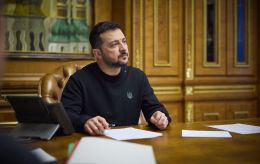Threats and tricks: How Slovakia and Hungary try to keep gas transit through Ukraine
 Photo: Viktor Orbán and Robert Fico are trying to keep Russian gas transit through Ukraine (Getty Images)
Photo: Viktor Orbán and Robert Fico are trying to keep Russian gas transit through Ukraine (Getty Images)
The contract for the transit of Russian gas through Ukraine is a little over a week away from expiration. However, two EU countries - Slovakia and Hungary - do not want to lose critical supplies and are counting the losses if the route is lost.
Contents
- When the Russian gas transit contract expires
- Who is interested in gas transit from Russia and why
- Ukraine's refusal, Slovakia's threats, and the bribery scandal
- What's next and what schemes Hungary offers
When the Russian gas transit contract expires
The current transit contract expires in less than 10 days. Ukraine excludes the possibility of further transportation of Russian gas. Slovakia has led efforts to find a workaround, earning about 500 million euros a year by reselling gas to Europe.
Slovak Prime Minister Robert Fico announced intensive negotiations involving Ukraine, the European Commission, and European countries. Last week, transit was one of the topics discussed the most at the EU Council summit.
Ukraine's main demand is that the gas supplied through the Ukrainian gas transportation system is not Russian. So far, no agreement has been reached. According to Ukraine's Prime Minister Denys Shmyhal, the position remains clear: consistent sanctions against Russian assets, oil, and gas. And, of course, Ukraine is against any support for the aggressor country.
“Today we understand that the gas transit agreement expires on January 1, 2025. At 07:00 in the morning, the transit will be physically blocked as this agreement will be completed,” he said on Friday during Question Hour to the government.
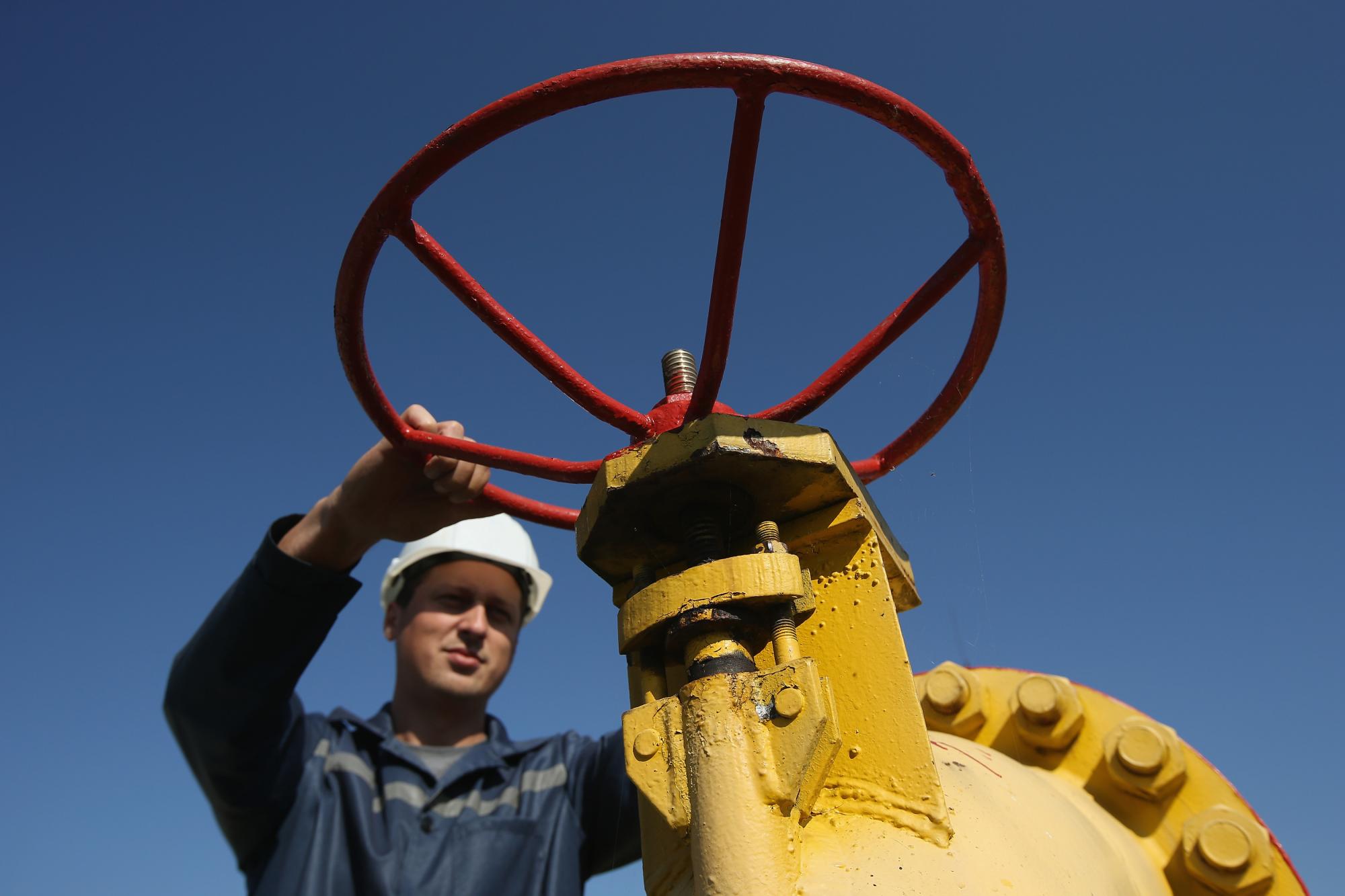
Photo: Ukraine will cut off Russian gas transit on the morning of January 1, 2025 (Getty Images)
According to him, the resumption of transit is possible at the request of the European Commission, if it is not Russian gas. As for the transit of Russian oil, Ukraine is forced to continue it following the European Energy Charter Treaty.
“So far, we cannot violate the Association Agreement... But we are working to impose 100% sanctions on Russian molecules,” the prime minister added.
Yet, neither Slovakia nor Hungary lose hope for the Ukrainian route. They do not rule out that if they fail to reach an agreement by the deadline, they will continue to look for opportunities in 2025.
Who is interested in gas transit from Russia and why
The current contract stipulates the supply of 40 billion cubic meters of gas per year, but in recent years it has been much less. In 2023, transit amounted to about 15 billion. The pipeline through Ukraine is one of the two operating routes from Russia to Europe (the other is the TurkStream). It accounts for only 5% of total gas imports to the EU, but some countries are highly dependent on these supplies.
The share of Russian gas in Hungary's imports is 47%, and Slovakia's is almost 90%. Austria has completely abandoned Russian gas, but as recently as January 2024, it received 97% of its gas from Gazprom. And together with Slovakia, it received 97% of its gas via Ukraine.
Such a high dependence is explained by the infrastructure connection to Russia and long-term contracts. Geography also forces them to rely on the Ukrainian pipeline. Hungary, Austria, and Slovakia are landlocked, which makes access to liquefied natural gas (LNG, delivered to marine terminals) difficult. LNG shipments are expensive, and any alternative routes would raise tariffs.
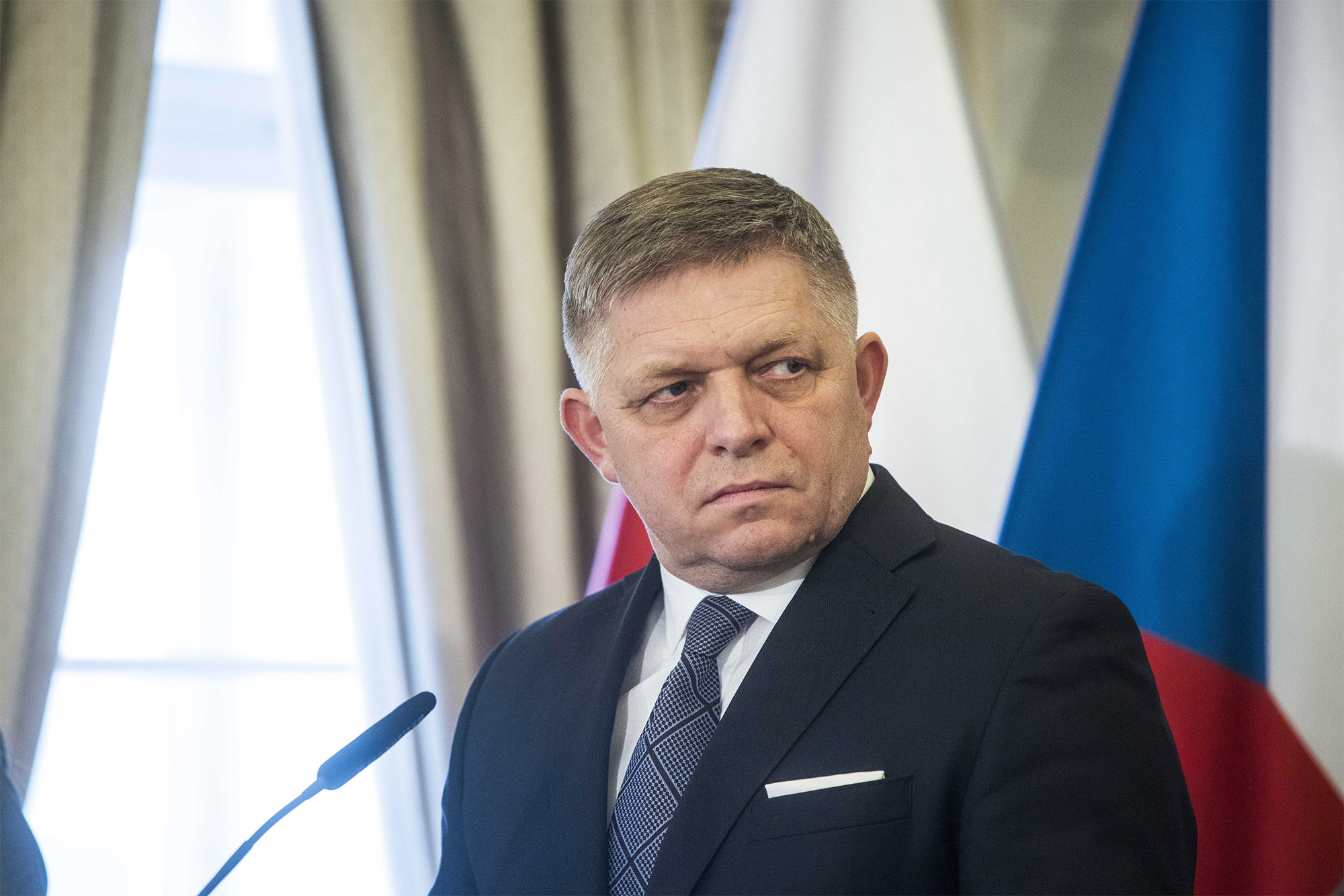
Photo: Robert Fico threatens Ukraine with “conflict” if gas transit is not continued (Getty Images)
Leading Central European gas companies have signed a declaration calling for keeping the transit: Slovakia's SPP and Eustream AS, Hungary's MOL and MVM, as well as large industrial customers from Hungary, Austria, Italy, and Slovakia.
Slovakia estimates the damage caused by the gas pipe blockage at 220 million euros. “If (Ukrainian President - ed.) Zelenskyy does not allow our gas to flow, a serious conflict may arise,” Slovak Prime Minister Robert Fico wrote on Facebook.
Reuters, citing a European Commission spokesperson, reports the regulator has taken an unequivocal position. Brussels is ready to stop gas transit through Ukraine and does not support any discussions on this issue.
Ukraine's refusal, Slovakia's threats, and the bribery scandal
Against this backdrop, the disagreements between Ukraine and Slovakia have only escalated. After a meeting with EU leaders, President Volodymyr Zelenskyy said that any gas flow from Russia would be banned to avoid the risk of Russian gas being sold to Europe under the guise of Azerbaijani gas.
“We will not allow them to earn additional billions on our blood. And any country in the world that can get something cheap from Russia will eventually become dependent on Russia - no matter if it happens in a month or a year. This is their policy,” he said.
Fico did not like this statement. His country annually imports 3 billion cubic meters of gas, which covers most of its needs. It was assumed that as an alternative, Slovakia could turn to Azerbaijan, which positions itself as an affordable source.
According to the scheme, Russia would supply gas labeled as “Azerbaijani gas” to Ukraine, and Baku would buy back Russian gas using the same infrastructure. Zelenskyy made it clear that this would not work, as Moscow would still be making money for the war.
He also proposed an exception: Ukraine will allow transit if the European buyer does not pay for the supplies until the war is over. Russia is unlikely to accept this offer. “We will think about it. But we will not give Russia the opportunity to earn additional billions that will be invested in the war,” the president said.
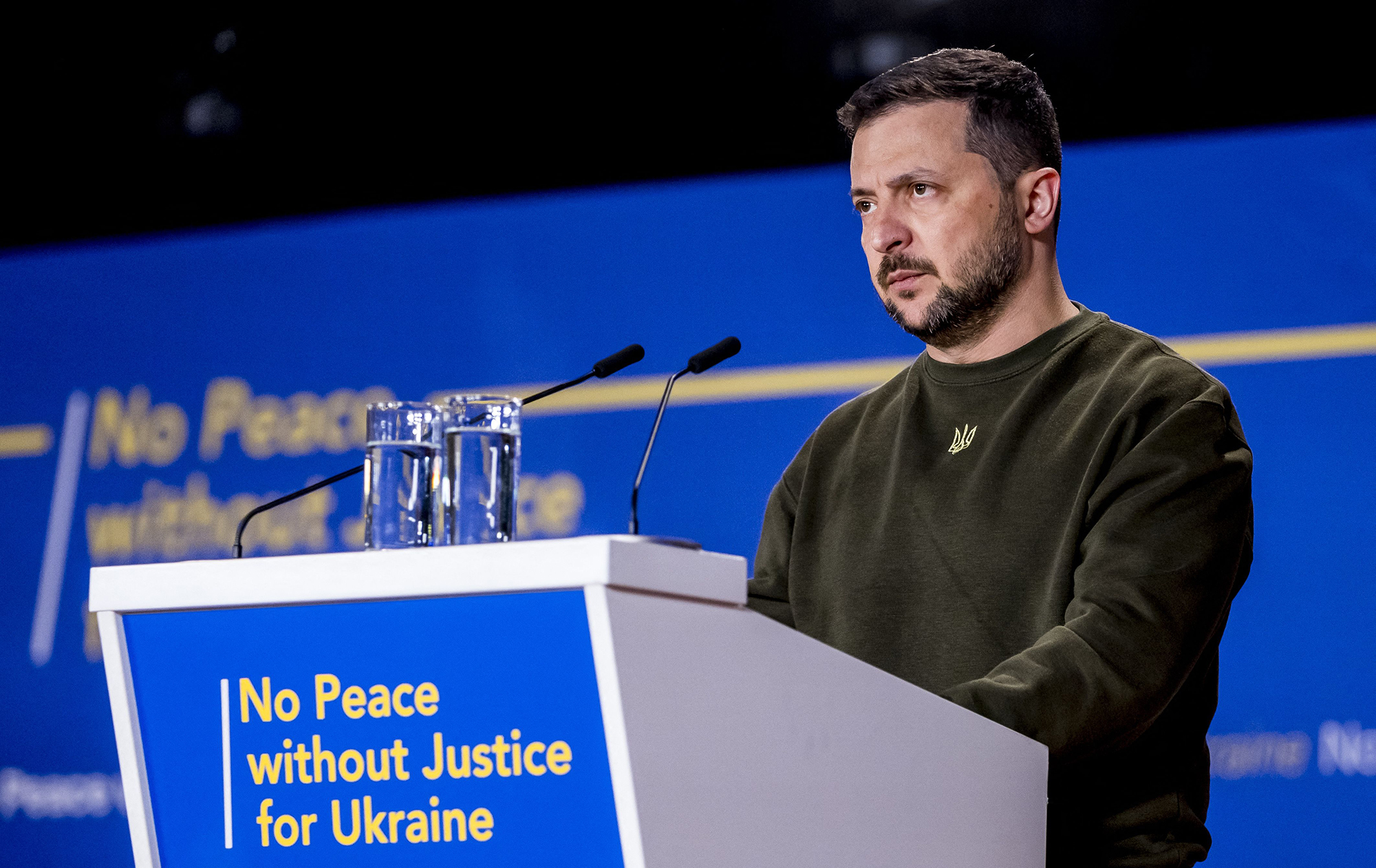
Photo: Volodymyr Zelenskyy has abandoned the "Azerbaijani gas" scheme (Getty Images)
Slovakia's SPP warned that the loss of supplies would cost an additional €150 million in higher fees. According to Zelenskyy, Ukraine will also lose money from stopping the transit (according to the European research organization Bruegel, about 0.5% of GDP). “To be honest, it's a little bit embarrassing to talk about money during the war because we are losing people,” Zelenskyy added.
Fico said he was stunned by the Ukrainian president's refusal after the conversation in Brussels. He also doubted that Kyiv “has the right to harm the economic and national interests of an individual EU member” in such circumstances. And if the transit permit is not granted, he said, he will consider whether to take retaliatory measures against Ukraine. Electricity, humanitarian aid, and private arms supplies are currently being sent from Slovakia.
The problem was raised by an anonymous Ukrainian official in a comment to Politico. According to him, Kyiv is constantly demanding sanctions against the Russian nuclear industry, but Fico and Hungarian Prime Minister Viktor Orbán are among those who are blocking sanctions and Ukraine's invitation to NATO.
Fico also recently said that Zelenskyy allegedly tried to bribe him. After he said that Slovakia would lose 500 million euros a year, Zelenskyy allegedly asked if Fico would support Ukraine's accession to NATO if Bratislava received this money from Russian assets. “Of course, I said never,” the prime minister said.
Responding to these claims, the Ukrainian official said that Zelenskyy's words were taken out of context. “Zelenskyy offered him to negotiate with our partners and said that we would compensate Fico for his losses, and in return, he would help us with our national security and support us in NATO. He said no,” Politico quoted him.
According to him, the Slovak prime minister also rejected proposals to transit any gas other than Russian, hiding behind the thesis that resale revenues are a national security priority. “But for Fico, it's not about security at all,” the source added.
He also called on Slovakia to follow the example of other European countries and find other sources of supply. It seems that finding an alternative is still not among its priorities. The day before, Fico arrived in Moscow to negotiate with Vladimir Putin. Following the meeting, the Slovak prime minister posted on his Facebook that Putin was ready to supply gas, but everything rests on Ukraine's position.
What's next and what schemes Hungary offers
In the future, Eastern European nations may receive Russian LNG, but additional capacity will be introduced no earlier than the second half of 2025. So pipeline gas is the only option for now. The Balkan Stream, a branch of the TurkStream, remains, and Hungary and Slovakia may reorient themselves to it.
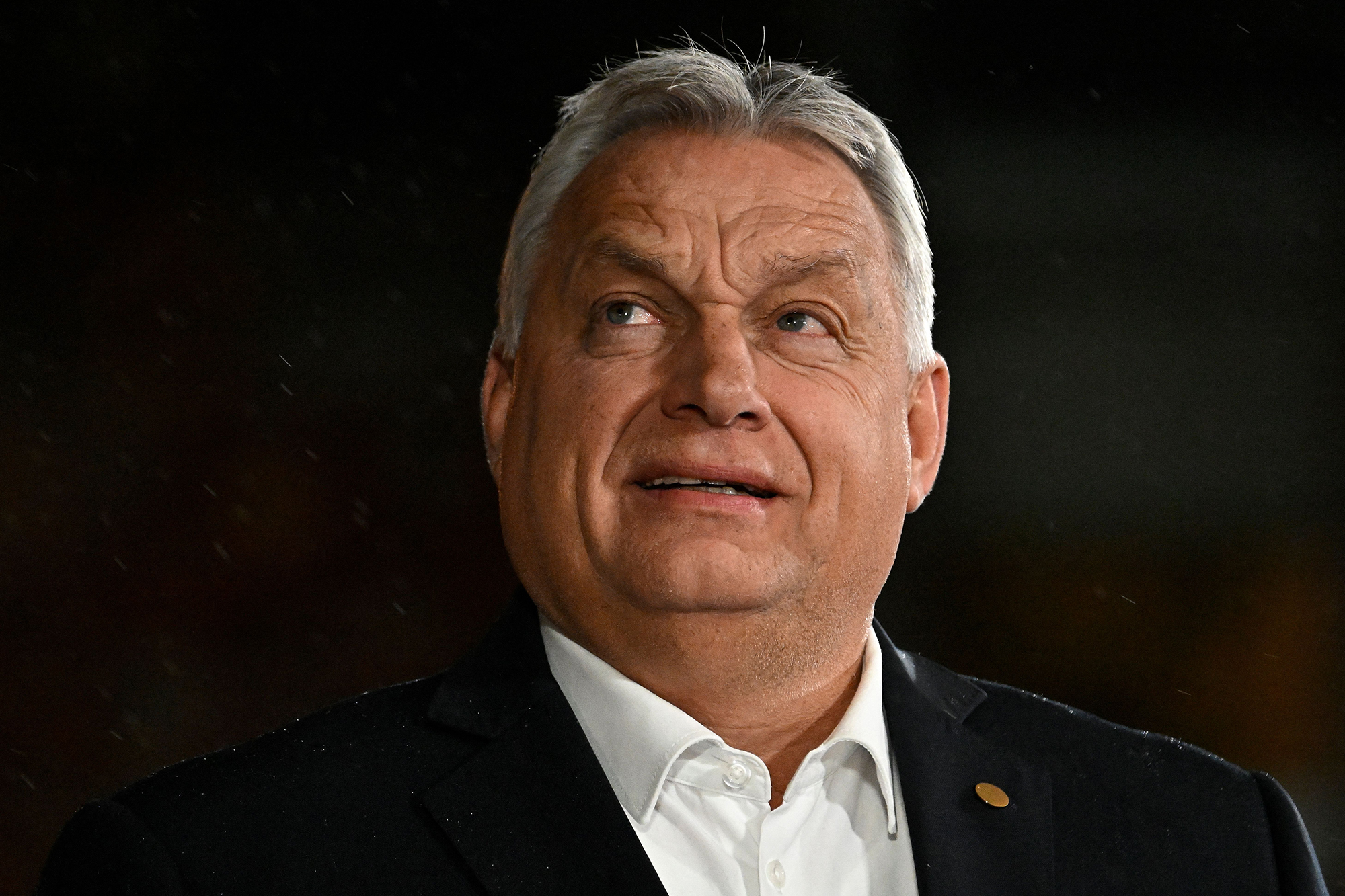
Photo: Viktor Orbán said he would try to “pull a trick” and still get gas supplies through the Ukrainian pipeline (Getty Images)
In fact, they have little to rely on. Other traditional sources of gas for Europe - Norway, Algeria, and Azerbaijan - are unable to cover the volume of imports lost after January 1. It is impossible to make up for the 15 billion cubic meters a year deficit from the Balkan Stream, as the capacity is already fully booked, and the TurkStream will not be expanded.
Meanwhile, Viktor Orbán recently reiterated that he did not want to abandon the Ukrainian route. He also said that negotiations on keeping supplies were underway with both Russia and Ukraine. And he made it clear that he was counting on a new scheme.
“We will try a trick. What if buyers already own the gas by the time it arrives in Ukraine? It will no longer be Russian gas, but Hungarian gas,” he said, presumably referring to the option of moving the entry point to the Russian-Ukrainian border.
For now, it looks like transit will stop on January 1. Last week, Vladimir Putin said he expected the contract to be terminated. According to analysts, this will be a painful blow to the economy of the country in war, as Russia will lose up to $6.5 billion in gas revenues.
Sources: statements by President of Ukraine Volodymyr Zelenskyy, Prime Minister Denys Shmyhal, Prime Minister of Slovakia Robert Fico, Hungarian Prime Minister Viktor Orbán, and articles by Politico, Bloomberg, and Reuters.

